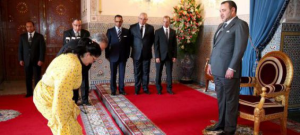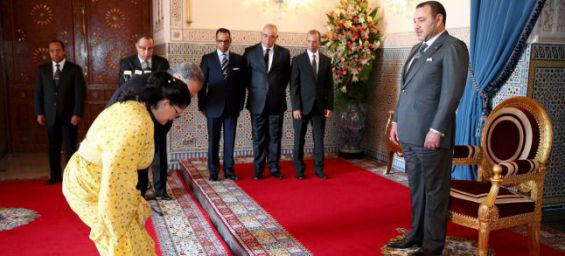 For the first time in Morocco’s history, a woman has been appointed earlier this month Wali (senior prefect) of the north-western region of Gharb -Chrarda- Beni Hssen.
For the first time in Morocco’s history, a woman has been appointed earlier this month Wali (senior prefect) of the north-western region of Gharb -Chrarda- Beni Hssen.
The appointment of Zineb El Adaoui to the position, the only woman out of the 15 appointed Walis, is considered a milestone in a process initiated over a decade ago to lay emphasis on gender equity and give women the prominent place they deserve in decision and policy making circles.
Two other women, namely Najat Zerrouq and Hanane Tajani, were appointed governors of two municipalities of the Greater Casablanca.
These appointments actually come in response to civil society activists who have long claimed women’s right to hold decision making positions, so far considered the preserve of men.
If Moroccan women, conscious of their power, started assuming their leadership in the government, the Parliament and many other institutions, when it comes to territorial management, their presence is almost null. Some women had the title of prefect, but they mostly work in the central administration of the Ministry of the interior with no genuine territorial management role. Besides, the overall number of women working in the interior ministry represents only 9.90 percent of the department’s human resources, which is the lowest percentage compared to other ministerial departments.
“The appointment of the first female Wali is a big stride in Morocco’s history although it does not meet all our expectations,” said Khadija Rabbah, coordinator of the movement for parity democracy. This overdue appointment is not an almsgiving and women are worth it, she said in a statement to a local daily, insisting that it is still below the expectations of the NGOs militating for women’s rights.
These NGOs want an effective implementation of the Constitution provisions, mainly Article 19 which provides for the principle of equality and parity between men and women and for fight against all forms of discrimination harming women.
As to Zineb El Adaoui, this is not the first time that she is making history in Morocco since she has been the first woman to hold the position of judge at the Court of Accounts in 1984 and has been holding, since 2004, the position of head of the Rabat Regional Court of Accounts.
Born in 1960, Zineb El Adaoui, a university graduate in economics, is also member of the Advisory Committee on Regionalization, set up in 2010, member of the National Council for Human Rights since 2011 and member of the High Authority of National Dialog on Judicial Reform, an institution created in 2012.
In 2007, she became one of the few women to give a religious lecture before the king during the month of Ramadan and was selected in 2010 “Woman of the Year” by a local association.
She is also co-founder of the Moroccan International Women’s Forum Chapter and actively participates in several other associations and forums endeavouring to upgrade women’s leadership.
This poet and researcher in Islamic economy is married and mother to two children.



